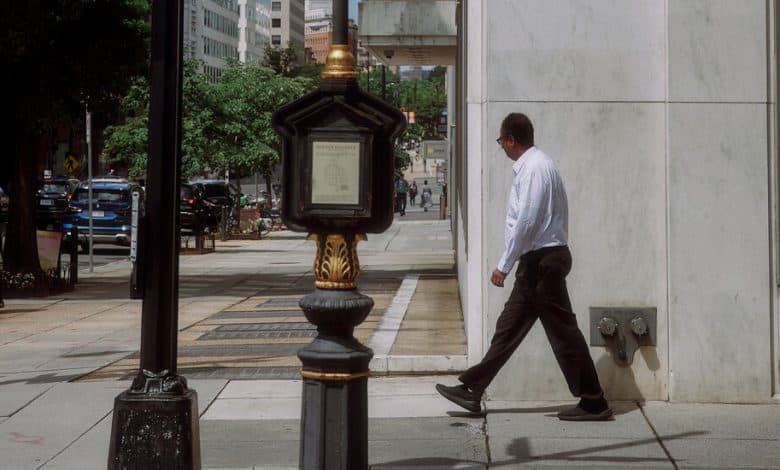Businesses in D.C. Blame the Government for the District’s Empty Offices

Kostas Fostieris grew wistful as he remembered the workday crowds that once flocked to Greek Deli & Catering, a small restaurant a few blocks from the White House that he has operated for 35 years. At lunch, the line would stretch down the block, Mr. Fostieris said. But then the coronavirus pandemic swept the nation, and the lunch crowds vanished. They have yet to return.
“It’s like the day and night,” Mr. Fostieris lamented as he sat against a wall adorned with signed photographs of the current and former presidents as well as a plethora of framed reviews — some faded, all glowing — from newspapers, magazines and guidebooks.
When asked if business on certain weekdays was especially slow, Mr. Fostieris answered quickly: “Every day.”

“It’s like the day and night,” Kostas Fostieris said, comparing his lunch crowds now at Greek Deli & Catering in Washington, D.C., with those before the pandemic.Credit…Jared Soares for The New York Times
Almost all U.S. cities have been hit hard by workers turning away from downtown offices, but few have been hit harder than Washington. The International Monetary Fund recently identified Washington as one of the three American cities with especially weak commercial real estate sectors.
But unlike the other two, Seattle and San Francisco, Washington is not a technology hub but a company town that relies on a single employer to a degree not seen elsewhere. The local economy is powered by about 160,000 federal workers in the district, who are only now slowly returning to their workplaces from their suburban home offices. Last fall, an annual survey of 625,568 federal workers found that more than two-thirds were still working remotely some of the time.
